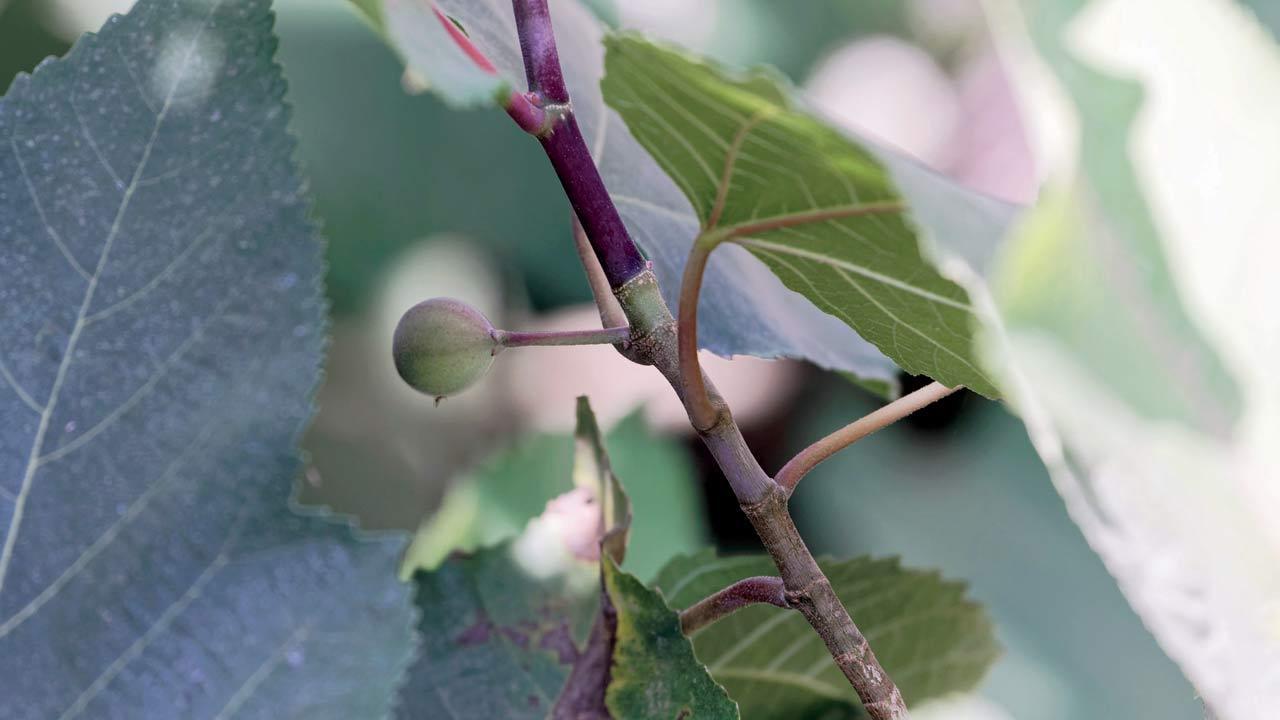Jalandhar-based professor dips into local music and folklore to build research for three-year-long study that establishes the healing properties of a Himalayan fruit

The wild Himalayan fig or bedu, which is scientifically known as Ficus Palmata, holds cultural and social importance in the Himalayan region because there are many traditional songs about it, says Dr Tewari
When it comes to fruits, this writer avoids figs (anjeer) like the plague. The fleshy fruit has never tickled our taste buds. It’s only perhaps the anjeer barfis and pedas that we find tolerable.
ADVERTISEMENT
But, if Dr Devesh Tewari’s study is anything to go by, the fruit is the balm that our body really needs. Tewari, a research lead and assistant professor at the Department of Pharmacognosy, School of Pharmaceutical sciences at Lovely Professional University (LPU) in Jalandhar, has spent the last three years studying a fig variety endemic to the Himalayan region in India.
 Dr Devesh Tewari
Dr Devesh Tewari
His study has confirmed the potent pain relieving properties of the fruit, known as bedu in the region. The three-year-long collaborative study was done by various researchers from universities across India, including Kumaun University, LPU, Sharda University, Ganpat University and institutions in Italy, Tehran, Iran and Hungary.
Dr Tewari’s extensive experience with Himalayan medicinal plants, particularly from Kumaun in Uttrakhand, came handy. “We have conducted ethno-botanical investigations, that is, gathering folklore information and knowledge preserved by elderly people in the Himalayan and surrounding regions,” he shares, adding that bedu, which goes by the scientific name Ficus Palmata, holds cultural and social importance in the region, including in local music where it finds a mention. Locals have been using the fruit to address pain experienced during backache, and testing it on rodents proved the benefit. Despite it displaying medicinal and pain relieving properties, Tewari clarifies that it cannot be categorised as a drug just yet. This is a pre-clinical study, he adds, and more research is needed. What he won’t deny is that the fruit is used as a nutraceutical or food with health benefits. He says it’s akin to turmeric, which has wound healing properties, but isn’t treated as a drug. However, it isn’t considered to be a home remedy either because it is not as easily available as turmeric. Found in Himachal, Kashmir and the Northeast, the bedu, Tewari and his collaborators advise needs to be cultivated to harness its benefits.
“Those who know about it swear by it,” says Dr Tewari, who faced the challenge of accessing areas along the Indo-Nepal border in order to hold conversations with the locals. However, since Dr Tewari hails from the Himalayan region of Kumaun, he had the added benefit of knowing the local language, which he used to gather primary information for his research. “It’s a rapidly vanishing food, and the older residents were lamenting that it could disappear from popular imagination since the younger generation is reluctant to accept natural remedies. It is vital today that we explore folklore, and knowledge passed down generations and back it with cutting edge research. This study will prove important for the socio-economic development of the rural areas of the Himalayan region.”
 Subscribe today by clicking the link and stay updated with the latest news!" Click here!
Subscribe today by clicking the link and stay updated with the latest news!" Click here!







